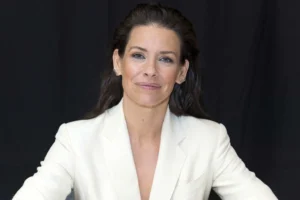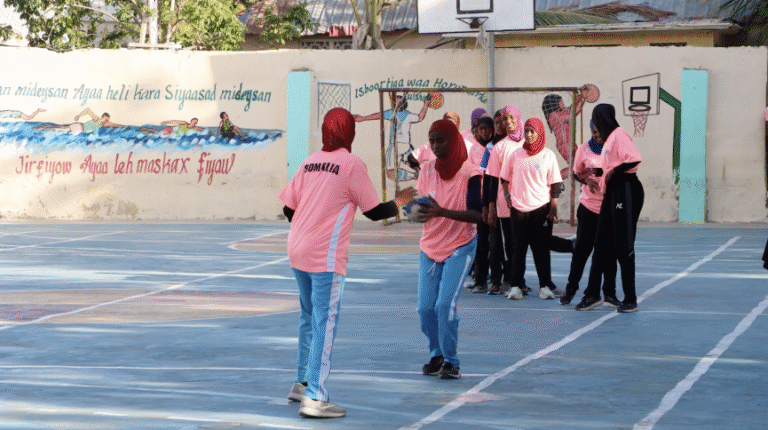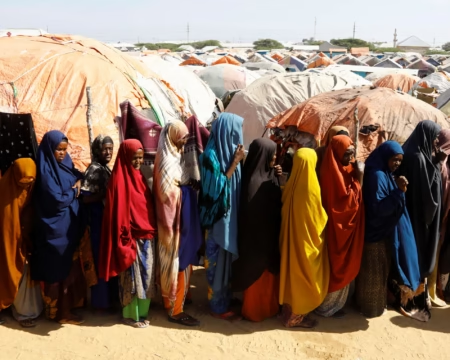In Somalia, female athletes face extraordinary challenges in a deeply patriarchal society. From societal pressure to threats from extremist groups and a lack of resources, sports for women are far from ordinary. Despite these obstacles, a new generation of women athletes is determined to chase their dreams.
The Tragic Loss of Samia Yusuf Omar
The story of Samia Yusuf Omar, a Somali athlete who tragically drowned in 2012 while trying to reach Europe, highlights the extreme challenges faced by Somali women in sports. Samia, a talented track athlete, competed in the 2008 Beijing Olympics but was forced to flee her home country due to threats from militant groups like Al-Shabaab, who oppose women in sports. After attempting to reach Europe for better training opportunities, her journey ended in tragedy when she drowned in the Mediterranean Sea.
Samia’s story remains a stark reminder of the personal sacrifices many women make in the pursuit of their dreams, but it also serves as an inspiration for the younger generation of Somali female athletes.
A New Generation of Handball Players
Despite the hardships, Somali women’s handball players are defying the odds and training relentlessly for the upcoming Africa Zone 5 women’s youth and junior tournaments, part of the International Handball Federation Trophy Africa tournament in Uganda in May 2025.
One of these rising stars is 17-year-old Fowsiya Nur Hassan Ali, a talented player for the Somali women’s handball team. Fowsiya joined the team in 2022 after encouragement from her mother, despite the numerous cultural and societal barriers she faces as a woman in sports. The team trains on a dusty field in the Boondheere district of Mogadishu, a space often dominated by male players. Yet, Fowsiya and her teammates persist.
Growing up, Fowsiya was inspired by sports, particularly American NBA games she watched on YouTube. However, she acknowledges the challenges that come with being a female athlete in Somalia.
“There are some people who do not like me playing and who don’t want to see me succeed in sports as a woman,” Fowsiya says. But despite this, she remains focused on her goals and refuses to be discouraged.
“I would say to them, ‘Come and see how we’re doing in the stadium. Even if you’re not willing to play, just come and watch,’” Fowsiya adds, motivated by the growing support from fans who show up to watch her team play.
Challenges of Training and Funding
The Somali women’s handball team not only faces societal challenges but also severe underfunding. Many players are forced to train with limited equipment, sometimes sharing just one set of clothing and shoes. The cost of a pair of trainers is only $35, but for many, that amount is beyond reach.
Mohamed Hurshe Hassan ‘Enow,’ the president of the Somali Handball Federation, reflects on the history and struggles of Somali handball. “We began recruiting men’s and women’s teams for national competitions in 1991, during the civil war,” he says, pointing out that sports played a role in uniting the divided city of Mogadishu.
Despite these ongoing financial struggles, the players are determined to continue pushing forward. “We began training this team from the very beginning. First, they played in Serie B, and then they came to Serie A,” explains Fadumo Ali Abdirahman, the coach of the team.
Hopeful for International Recognition
Back in 2018, the Somali women’s under-18 handball team faced a tough defeat against Uganda, with a score of 37-16. However, Fadumo remains hopeful for the future. “Even though we have limited resources and equipment, we are trying our best. We will continue to strengthen the team, Insha’Allah. We hope for a very beautiful victory,” she says.
For many of the young athletes, handball offers a more accessible alternative to football, which requires more players and equipment. 17-year-old Hodan Mohamud Abdullahi explains, “In football, you need more people to play various roles, but with handball, I can play alone on the field. I don’t need anyone to help me. I can play by myself and try out the best skills I can develop.”
Another rising star, Nasteho Mohamud Khamiis, shares her ambition to play at the national level. “After the game in Uganda, I am going to play at the national championship with my favorite team, Heegan,” Nasteho says. Heegan, established under the Somali Police Force in the 1970s, remains a significant part of Somalia’s football culture.
Support from the Community
Encouragingly, Somali men are increasingly supporting women’s sports. Hassan Yusuf Abdullahi, a local fan from Boondheere, frequently attends the team’s matches. “I’m very happy. I admire the progress these girls are making,” he says. “I’ve always been passionate about handball, and now I stand with the girls. I support them wholeheartedly, and I’m proud of them.”
Coach Fadumo echoes the need for continued support. “I ask our fans and supporters to continue supporting us. I ask them to come to the stadium, watch the games, and cheer our women as they play,” she appeals.
Overcoming Extremist Threats
Despite the daily threats they face, particularly from extremist groups like Al-Shabaab, the women do not speak publicly about these dangers, adhering to management instructions to protect their safety. Still, they remain hopeful, driven by their dreams and aspirations.
Hodan sends a powerful message to other young women: “Women can do anything. Sadly, some women believe that they cannot achieve anything. But you must understand, it’s all about your mindset. If you set a goal today and believe that you can achieve it, you surely will. But if you believe you can’t, then you won’t achieve it.”
Nasteho reminds everyone of the importance of their mission: “Each of us is striving to represent our Somali flag, bring home the victory, and win the trophy. It has been my dream to wear the t-shirt with Somalia painted on it in international games. God willing, we hope to bring victory to our country.”
The Future of Somali Women in Sports
As the Somali women’s handball team continues to rise, they are not only challenging societal norms but also paving the way for future generations of female athletes. With unwavering determination, these women are fighting for their place in the sports world, driven by the hope of one day representing Somalia on the international stage.







